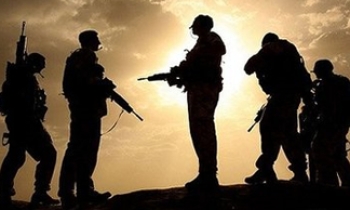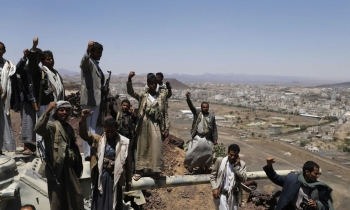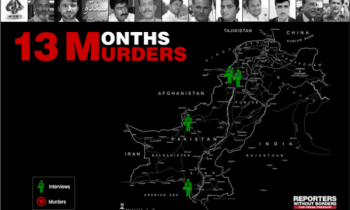The human rights watchdog Amnesty International on Tuesday presented two Russian human rights activists and journalists with an award for their work in Chechnya and elsewhere in the North Caucasus.
The “Journalism Under Threat” prize was awarded during a ceremony in London to Stanislav Dmitriyevsky and Oksana Chelysheva, both representing the Russian-Chechen Friendship Society, Radio Free Europe reports.
The two head the Russian-Chechen Friendship Society, a nongovernmental organization that disseminates information about the human rights situation in Chechnya and legally defends the interests of victims of the Chechen war.
Dmitriyevsky told RFE/RL that the organization continues its work despite pressure from the authorities.
“You go to Chechnya and meet just another powerless human being who needs help and it is difficult to stop helping.”
The Russian-Chechen Friendship Society is based in Nizhny Novgorod and has branch offices in Chechnya (Grozny) and the neighboring republic of Ingushetia (Nazran). Since its founding in 2000 it has become a mouthpiece of criticism against human rights violations in Chechnya and surrounding areas.
Dimitriyevsky, who is also the editor in chief of “Pravozachita” newspaper, attracted the attention of authorities last September when the newspaper published an appeal for peace by the leader of Chechnya’s separatist leader at the time, Aslan Maskhadov, and by his representative, Akhmed Zakayev.
For publishing the appeals Dimitriyevsky was charged by prosecutors in Nizhny Novgorod with “inciting hatred or enmity on the basis of ethnicity and religion.”
Both Dimitriyevsky and Chelysheva have encountered other problems resulting from their work — including several anonymous death threats.
Chelysheva says sometimes defending human rights in Chechnya seems like an impossible mission in Russia. But she also says the importance of the NGO’s work provides her with ample motivation to carry on.
“Amnesty International believes that these two people’s lives are actually at risk,” said Neil Durkin, a spokesman for Amnesty International in London.
Durkin said the reward was not about money and involves no financial benefit. Rather, he said, it was a tribute to activists and journalists working in dangerous places throughout the world.









